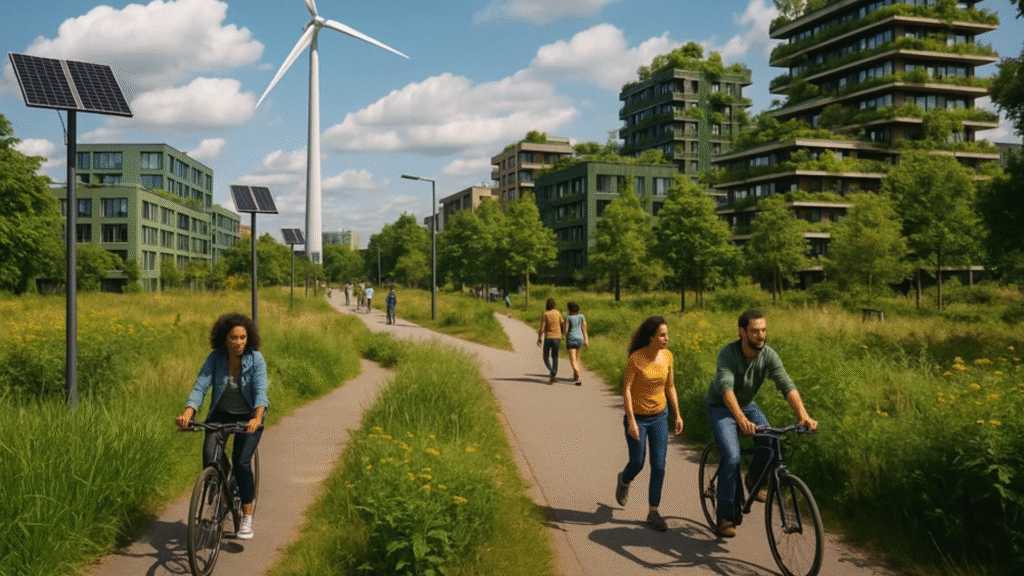As the world becomes increasingly urbanized, with nearly 70% of the global population projected to live in cities by 2050, the concept of sustainable cities is rapidly gaining traction. These urban environments seek to balance economic development with ecological responsibility and inclusive social progress. From smart mobility solutions and energy-efficient buildings to waste reduction systems and green public spaces, sustainable cities are redefining how humanity coexists with nature. Cities like Copenhagen, Singapore, and Vancouver are setting international benchmarks by integrating climate adaptation strategies, promoting renewable energy, and encouraging citizen participation in urban planning, design, and governance.
Sustainable urban development is driven by global challenges like climate change, pollution, and resource depletion. In response, frameworks like the UN’s Sustainable Development Goal 11 – “Make cities inclusive, safe, resilient and sustainable” – are guiding both policy and investment. Further, the C40 Cities Climate Leadership Group, representing 100 cities worldwide, is leading innovative efforts to reduce emissions and strengthen urban resilience. Innovations such as vertical farming, green roofs, blue-green infrastructure, low-carbon transport, and circular economy principles are transforming urban landscapes and fostering long-term ecological balance.
In India, the challenge and opportunity are both vast. With over 40% of its population expected to live in urban areas by 2030, sustainable city planning has become a national priority. The Smart Cities Mission is at the forefront, aiming to integrate digital governance with green infrastructure. Cities like Pune and Bhubaneswar are experimenting with eco-friendly transportation, smart water management, and solar-powered public utilities. Further, India’s pledge to achieve net-zero emissions by 2070 has accelerated investments in green buildings and environmentally friendly transportation. However, bridging the gap between policy intent and ground-level execution remains critical for meaningful impact across sectors.
Thus, the future of urban living hinges on our ability to build cities that serve both people and the planet. Sustainable cities are not just a necessity—they are an opportunity to reimagine urban life in harmony with nature. Achieving this vision will require bold leadership, collaborative governance, and sustained investment in green innovation.

